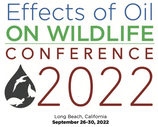Training the Next Generation Abstracts
Watch Videos (Login required)
|
The Need for Standardized Oiled Wildlife Response - Developments in Atlantic Canada
Ashley Noseworthy Edgewise Environmental Full Abstract
In the past 4 years Atlantic Canada, particularly Newfoundland and Labrador has seen substantial developments to training and qualifications required of oiled wildlife observers during response scenarios. This has taken considerable cooperation and communication between industry, government, and regional response organizations. The region has seen a newly developed program for dedicated observers, a call for higher fidelity training and increased awareness of seabird handling for vessel and spill crew. The requirement for formalized training and increased training fidelity has not only augmented the quality of data received but resulted in the following complexities and questions; are there enough qualified observers for sufficient response? How does the region overcome any gap in having enough qualified personnel for a particular sized spill? What is the appropriate number of personnel? And how do new observers enter into the field while ensuring data accuracy and integrity? Edgewise Environmental, a dedicated marine environmental consultancy, based in St. John’s, Newfoundland and Labrador, Canada, has developed these training programs and built significant relationships with industry, government, and indigenous communities in the region to deliver wildlife observer training. The objective of this presentation is to highlight the considerable communication that has developed between entities in the region and the cooperative effort it has taken to push forward the need for methodical training for observers. The discussion will center around the origins of this communication structure, how it has developed as well as aspirations for future collaboration. The presentation will also highlight the integration of indigenous communities within oiled wildlife response mechanisms and traditional knowledge that can be vital for response strategies. |
Mental Health and Self-Care During an Oiled Wildlife Response
Devin Bergeles International Bird Rescue Full Abstract
When discussing spill readiness and preparedness, one topic that is not often addressed is how to prepare our bodies and minds for the added stress, burnout and compassion fatigue that will accompany an oiled wildlife response. Deployment for oiled wildlife response can be lengthy and working hours may be pushed to the absolute limit with overtime and overlapping weeks of work without a day off. On top of the usual compassion fatigue associated with working with wildlife in a veterinary setting, there is added stress from the long working hours and the nature of the response to an environmental disaster. Although compassion fatigue is inevitable, there are ways to prepare yourself to combat it more successfully such as proper nutrition and hydration, packing comfort items, journaling and having open lines of communication, and remembering you are not alone. When we prepare our minds and our go bags with the right tools and supplies to head into a wildlife response, we can put our best foot forward and prepare ourselves to a make a better impact. This paper will delve into signs and symptoms, past studies, and self-care tips surrounding compassion fatigue in order to promote positive mental health to keep us strong, effective, and resilient during an oiled wildlife response. |
Wildlife Special Ideas for Oil Spill Exercises
Michael Short Asia Pacific Environmental Response Full Abstract
Australia holds regular National oil spill exercises through the National Plan for Maritime Emergencies. Two National Plan exercise activities include Exercise Northerly held in Darwin (Northern Territory) in 2014 and Exercise Torres focussed on the Torres Straits (Queensland) in 2018. Both exercises included oiled wildlife response special ideas to practice and test. Exercise Northerly for wildlife was principally a desktop activity that included a number of injects relating to wildlife threatened and impacted by an oil spill event. Wildlife considered in Northerly included whales, dolphins, sea turtles, sea snakes and seabirds. The key wildlife objectives for Northerly were to establish and maintain a wildlife Incident Management Team under the broader Incident Command structure and develop wildlife incident action plans for hazing wildlife and responding to oil impacted wildlife. Exercise Torres incorporated both planning and field based operational activities and considered dugong, dolphins, marine turtles and seabirds both threatened and impacted by oil pollution. Wildlife planning during exercise Torres was principally held in Cairns at the established Incident Control Centre where incident action plans were developed to haze oil threatened wildlife, collect oiled impacted wildlife and then rehabilitate wildlife considering the strict quarantine restrictions imposed on wildlife movements through and out of the Torres Strait Protection Zone. The field deployment activities for Torres were then managed and undertaken through a forward operations base established on Thursday Island, some 500 miles north of Cairns that borders Papua New Guinea. The wildlife field teams were required to establish an oiled wildlife response centre making it fully operational with pre-deployed equipment, manage responder safety for actual dangerous wildlife in the area, respond to reports of impacted wildlife, transport impacted mock wildlife, undertake wildlife assessment using narrative techniques, triage wildlife based on provided wildlife assessment data, decontaminate mock wildlife and then provide basic wildlife rehabilitation practices. Both National exercises provided effective opportunities to practice the skills necessary to better oiled wildlife responders. |

